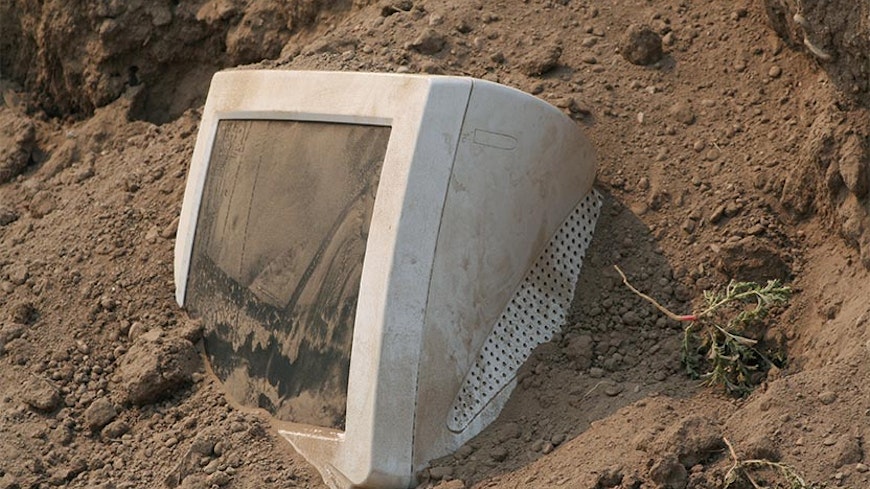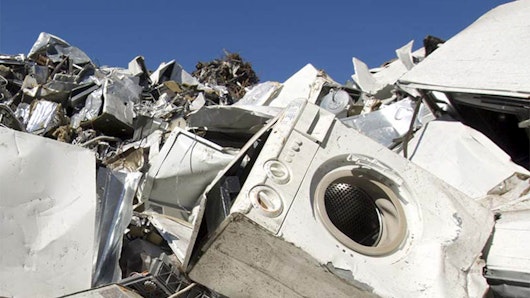
By Nick Gelling
Product Test Journalist | Kaipūrongo Whakamātautau Hautaonga
My Nokia smartphone has a huge battery. It lasted two days on a single charge when it was new. Two years later, I have to ration it to endure one 16-hour day.
And that’s fine, of course I do – a rechargeable battery can only last so long. Chemical reactions eat away at the capacity every time it’s charged until it’s a shadow of what it was. But why do we let some tech companies tell us that, when the battery dwindles, we have to replace our whole device?
Send to Recycle Bin: the tech industry and waste
When a device goes to landfill the toxic heavy metals it contains, like lead and cadmium, become environmental and health risks. Manufacturing a replacement device uses more metal, oil and energy. Recycling your old tech as e-waste helps to save a little energy and recover some materials, but using it for longer is much better. If your phone has a spent battery, you should replace and recycle the battery and keep the rest in use – but that’s not always possible.
It isn’t just batteries. Manufacturers have a habit of preventing you upgrading or repairing your own devices. For example, many laptops have RAM soldered directly to the motherboard, making upgrades impossible – if you need more memory, you need to buy a new laptop. Apple uses a unique screw on iPhones and MacBooks, explicitly because they can’t be opened by owners’ screwdrivers. That’s partially because fixing hardware is hard, and manufacturers don’t trust us to do it right. Okay, sure – but perhaps they should design products that are easier to repair?
Is there a better way?

Manufacturers would rather you ignore environmental issues and just upgrade.
New Zealand’s car fleet shows (for better or worse) that second-hand can be the norm for consumers. What if we treated devices the same way? When everyone in the US upgrades to the new iPhone, the trade-ins of last year’s model are reset, tested and shipped to us. When we’re done, they might eke out another year in the developing world, before finally being recycled. If that sounds good to you, look for “refurbished” tech – it’s nothing new, but isn’t big business yet. Brands like Apple flirt with selling refurbished products here – you can get a used iPad Mini 5 for $130 less than new, for instance, but it’s well-hidden on the website and feels like an afterthought. Refurbishment is more sustainable than recycling, so I’d love to see the market grow – as long as retailers are honest about it.
And now that we’re all accustomed to paying subscriptions for entertainment, why not extend that idea to leasing devices? I’d happily pay $30 a month for access to a laptop – it wouldn’t need to be personalised, because my files are all on the cloud and I’d mostly use it to access remote services like Spotify. I’ve never owned a tablet, but I’d “subscribe” to one for a few months to see if I like it. Subscription could be cheaper for older devices, incentivising us to use them for as long as possible. The lender would need to keep its stock in good repair to keep us happy. I wouldn’t be surprised if this model took off in some form over the next few years, especially if carefully aimed at strategic markets like secondary and tertiary students.
Of course, you and I alone can’t solve these monumental challenges. But we can spend our cash on companies that empower consumers and minimise waste, whether that’s through building home-upgradable products or running refurbishment programs. We can pressure government to legislate responsibility on manufacturers and ramp up electronics recycling programs. And we can have a little more discipline in resisting the annual sales pitch.
Fixing this glitch in the technology industry doesn’t just save us money. It’s also linked to the biggest challenges of our time. If we let the planet degrade, we can’t throw it out and buy a new one.
Stay in the know
Keep up-to-date with Consumer's latest news, investigations and product and service reviews, plus join the Consumer panel with invitations to take part in surveys.

Help reduce e-waste.
We can all do our bit. Our role is to fearlessly advocate for manufacturers and retailers to make and sell better products. We’ll also provide practical, expert advice so you don’t need to replace broken appliances so often. You can help too - join Consumer today to support our work.